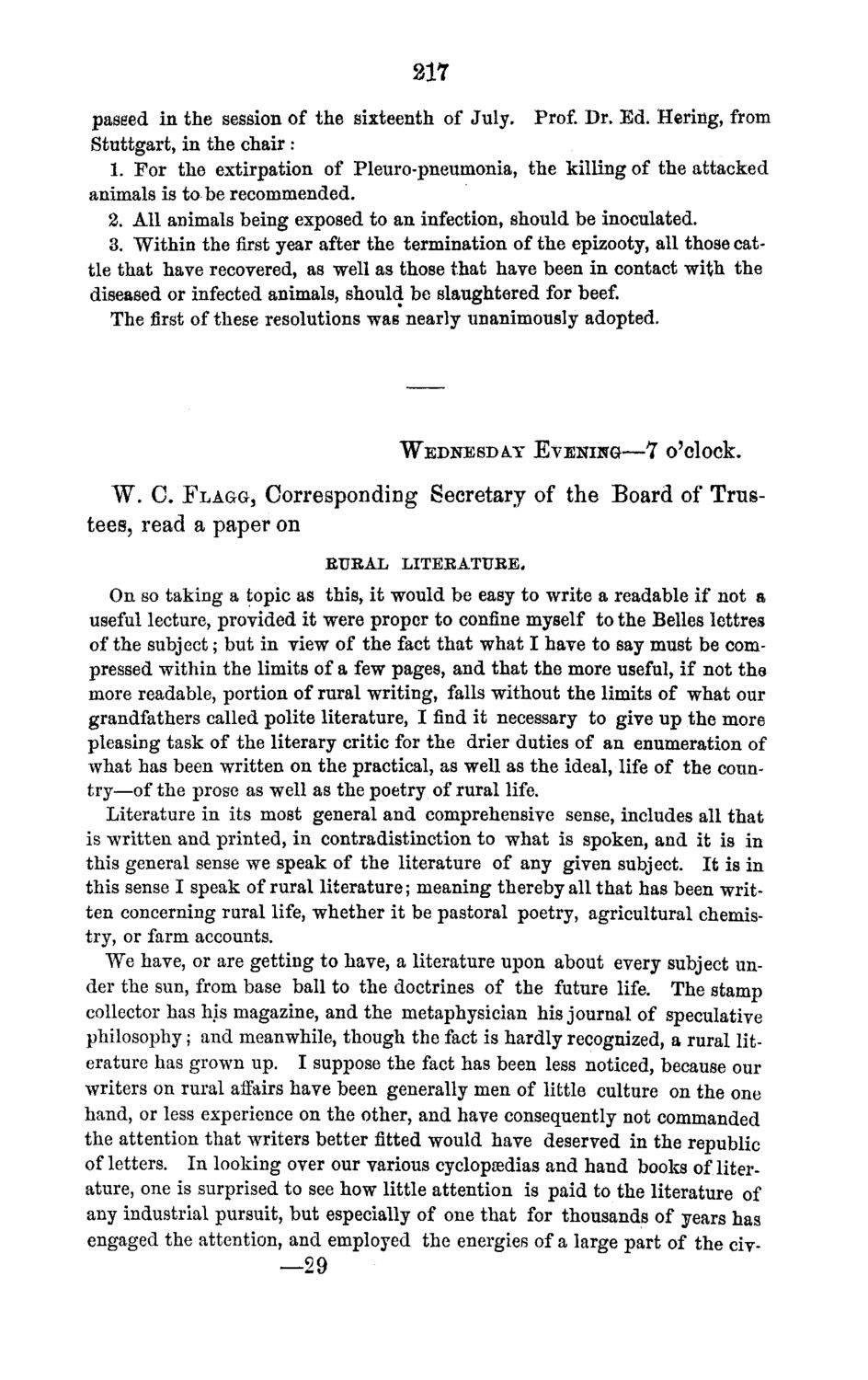| |
| |
Caption: Board of Trustees Minutes - 1870
This is a reduced-resolution page image for fast online browsing.

EXTRACTED TEXT FROM PAGE:
217 passed in the session of the sixteenth of July. Prof. Dr. Ed. Hering, from Stuttgart, in the chair : 1. For the extirpation of Pleuro-pneumonia, the killing of the attacked animals is to be recommended. 2. All animals being exposed to an infection, should be inoculated. 3. Within the first year after the termination of the epizooty, all those cattle that have recovered, as well as those that have been in contact with the diseased or infected animals, should be slaughtered for beef. The first of these resolutions was nearly unanimously adopted. WEDNESDAY EVENING—7 o'clock. W. 0 . FLAGG, Corresponding Secretary of the Board of Trustees, read a paper on RTJBAL LITERATURE. On so taking a topic as this, it would be easy to write a readable if not a useful lecture, provided it were proper to confine myself to the Belles lettres of the subject; but in view of the fact that what I have to say must be compressed within the limits of a few pages, and that the more useful, if not the more readable, portion of rural writing, falls without the limits of what our grandfathers called polite literature, I find it necessary to give up the more pleasing task of the literary critic for the drier duties of an enumeration of what has been written on the practical, as well as the ideal, life of the country—of the prose as well as the poetry of rural life. Literature in its most general and comprehensive sense, includes all that is written and printed, in contradistinction to what is spoken, and it is in this general sense we speak of the literature of any given subject. It is in this sense I speak of rural literature; meaning thereby all that has been written concerning rural life, whether it be pastoral poetry, agricultural chemistry, or farm accounts. We have, or are getting to have, a literature upon about every subject under the sun, from base ball to the doctrines of the future life. The stamp collector has his magazine, and the metaphysician his journal of speculative philosophy; and meanwhile, though the fact is hardly recognized, a rural literature has grown up. I suppose the fact has been less noticed, because our writers on rural affairs have been generally men of little culture on the one hand, or less experience on the other, and have consequently not commanded the attention that writers better fitted would have deserved in the republic of letters. In looking over our various cyclopaedias and hand books of literature, one is surprised to see how little attention is paid to the literature of any industrial pursuit, but especially of one that for thousands of years has engaged the attention, and employed the energies of a large part of the civ- —29
| |